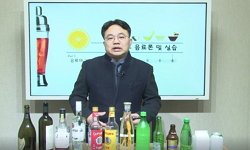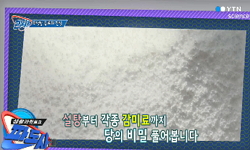Background/Aims: The aim of this study was to investigate the frequency of heartburn produced by beverages available in Korea and to clarify the mechanism causing heartburn. Methods: We measured pH, titratable acidity, and osmolality of 35 beverages i...
http://chineseinput.net/에서 pinyin(병음)방식으로 중국어를 변환할 수 있습니다.
변환된 중국어를 복사하여 사용하시면 됩니다.
- 中文 을 입력하시려면 zhongwen을 입력하시고 space를누르시면됩니다.
- 北京 을 입력하시려면 beijing을 입력하시고 space를 누르시면 됩니다.


국내 유통 중인 음료식품과 속쓰림과의 관련성에 관한 연구 = The Relationship between the Popular Beverages in Korea and Reported Postprandial Heartburn
한글로보기부가정보
다국어 초록 (Multilingual Abstract)
Background/Aims: The aim of this study was to investigate the frequency of heartburn produced by beverages available in Korea and to clarify the mechanism causing heartburn. Methods: We measured pH, titratable acidity, and osmolality of 35 beverages in vitro and correlated them with the severity of heartburn reported by questionnaire in 382 patients from November 2004 to June 2005. Results: Coffee (1.15) and soju (1.12) showed the highest heartburn score, while oolong tea (0.17) and carrot juice (0.18) showed the lowest heartburn score among all beverages. Titratable acidity of citrus juices correlated with heartburn (r=0.78; p=0.023). Soft drinks had the lowest pH, which was unrelated with heartburn scores (r=?0.54; p=0.460). Increasing pH among alcoholic beverages was correlated with heartburn scores (r=0.84; p=0.037), and osmolality was inversely associated with heartburn scores (r=?0.86; p=0.028). The heartburn score of decaffeinated coffee was significantly lower than that of regular coffee (p<0.001). Regular milk caused more heartburn than low-fat milk (p=0.008). Conclusions: Our findings provide dietary information that helps to select appropriate beverages to the patients with heartburn. (Korean J Gastroenterol 2010;55:109-118)
참고문헌 (Reference)
1 Boekema PJ, "van Berge Henegouwen GP, Smout AJPM. Coffee and gastrointestinal function: facts and fiction" 34 : S35-S39, 1999
2 Decarli A, "Vitamin A and other dietary factors in the etiology of esophageal cancer" 10 : 29-37, 1987
3 Kim YB, "The incidence of gastroesophageal reflux disease and the effect of cisapride in patients with epigastric soreness" 6 : 188-195, 2000
4 Bujanda L, "The effects of alcohol consumption upon the gastrointestinal tract" 95 : 3374-3382, 2000
5 Pehl C, "The effect of decaffeination of coffee on gastro-oesophageal reflux in patients with reflux disease" 11 : 483-486, 1997
6 Klauser AG, "Symptoms in gastro-oesophageal reflux disease" 335 : 205-208, 1990
7 Cuomo R, "Sweetened carbonated drinks do not alter upper digestive tract physiology in healthy subjects" 20 : 780-789, 2008
8 McArthur K, "Relative stimulatory effects of commonly ingested beverages on gastric acid secretion in humans" 83 : 199-203, 1982
9 Feldman M, "Relationships between the acidity and osmolality of popular beverages and reported postprandial heartburn" 108 : 125-131, 1995
10 Chow HH, "Pharmacokinetics and safety of green tea polyphenols after multiple-dose administration of epigallocatechin gallate and polyphenon E in healthy individuals" 9 : 3312-3319, 2003
1 Boekema PJ, "van Berge Henegouwen GP, Smout AJPM. Coffee and gastrointestinal function: facts and fiction" 34 : S35-S39, 1999
2 Decarli A, "Vitamin A and other dietary factors in the etiology of esophageal cancer" 10 : 29-37, 1987
3 Kim YB, "The incidence of gastroesophageal reflux disease and the effect of cisapride in patients with epigastric soreness" 6 : 188-195, 2000
4 Bujanda L, "The effects of alcohol consumption upon the gastrointestinal tract" 95 : 3374-3382, 2000
5 Pehl C, "The effect of decaffeination of coffee on gastro-oesophageal reflux in patients with reflux disease" 11 : 483-486, 1997
6 Klauser AG, "Symptoms in gastro-oesophageal reflux disease" 335 : 205-208, 1990
7 Cuomo R, "Sweetened carbonated drinks do not alter upper digestive tract physiology in healthy subjects" 20 : 780-789, 2008
8 McArthur K, "Relative stimulatory effects of commonly ingested beverages on gastric acid secretion in humans" 83 : 199-203, 1982
9 Feldman M, "Relationships between the acidity and osmolality of popular beverages and reported postprandial heartburn" 108 : 125-131, 1995
10 Chow HH, "Pharmacokinetics and safety of green tea polyphenols after multiple-dose administration of epigallocatechin gallate and polyphenon E in healthy individuals" 9 : 3312-3319, 2003
11 Salaspuro M, "Interrelationship between alcohol, smoking, acetaldehyde and cancer" 285 : 80-89, 2007
12 Lloyd DA, "Food-induced heartburn: effect of osmolality" 80 : 740-741, 1981
13 Schiller LR, "Distention-induced gastrin release: effects of luminal acidification and intravenous atropine" 78 : 912-917, 1980
14 Kahrilas PJ, "Cigarette smoking and gastroesophageal reflux disease" 10 : 61-71, 1992
15 Edelstein ZR, "Central adiposity and risk of Barrett's esophagus" 133 : 403-411, 2007
16 Ibiebele TI, "Cancers of the esophagus and carbonated beverage consumption: a population-based case-control study" 19 : 577-584, 2008
17 Ligumsky M, "Antioxidants inhibit ethanol-induced gastric injury in the rat. Role of manganese, glycine, and carotene" 30 : 854-860, 1995
18 Woo IS, "An improved method for determination of ethyl carbamate in Korean traditional rice wine" 26 : 363-368, 2001
19 Chari S, "Alcohol and gastric acid secretion in humans" 34 : 843-847, 1993
20 Cranley JP, "Abnormal lower esophageal sphincter pressure responses in patients with orange juice-induced heartburn" 81 : 104-106, 1986
동일학술지(권/호) 다른 논문
-
위 MALT 림프종에서 Helicobacter pylori 제균에 의한 완전 관해 예측인자
- 대한소화기학회
- 김수진 ( Su Jin Kim )
- 2010
- SCOPUS,KCI등재,ESCI
-
위식도 역류질환 환자에서 Proton Pump Inhibitor 치료 후 재발률 및 증상개선에 관한 임상적 고찰
- 대한소화기학회
- 정유정 ( You Jeong Jeong )
- 2010
- SCOPUS,KCI등재,ESCI
-
- 대한소화기학회
- 이승호 ( Seung Ho Lee )
- 2010
- SCOPUS,KCI등재,ESCI
-
- 대한소화기학회
- 유기덕 ( Ki Deok Yoo )
- 2010
- SCOPUS,KCI등재,ESCI
분석정보
인용정보 인용지수 설명보기
학술지 이력
| 연월일 | 이력구분 | 이력상세 | 등재구분 |
|---|---|---|---|
| 2022 | 평가예정 | 재인증평가 신청대상 (재인증) | |
| 2019-01-01 | 평가 | 등재학술지 유지 (계속평가) |  |
| 2011-01-01 | 평가 | 등재학술지 유지 (등재유지) |  |
| 2009-01-01 | 평가 | 등재학술지 유지 (등재유지) |  |
| 2007-01-01 | 평가 | 등재학술지 유지 (등재유지) |  |
| 2005-01-01 | 평가 | 등재학술지 유지 (등재유지) |  |
| 2002-01-01 | 평가 | 등재학술지 선정 (등재후보2차) |  |
| 1999-07-01 | 평가 | 등재후보학술지 선정 (신규평가) |  |
학술지 인용정보
| 기준연도 | WOS-KCI 통합IF(2년) | KCIF(2년) | KCIF(3년) |
|---|---|---|---|
| 2016 | 0.18 | 0.18 | 0.18 |
| KCIF(4년) | KCIF(5년) | 중심성지수(3년) | 즉시성지수 |
| 0.21 | 0.2 | 0.315 | 0.03 |




 KISS
KISS






